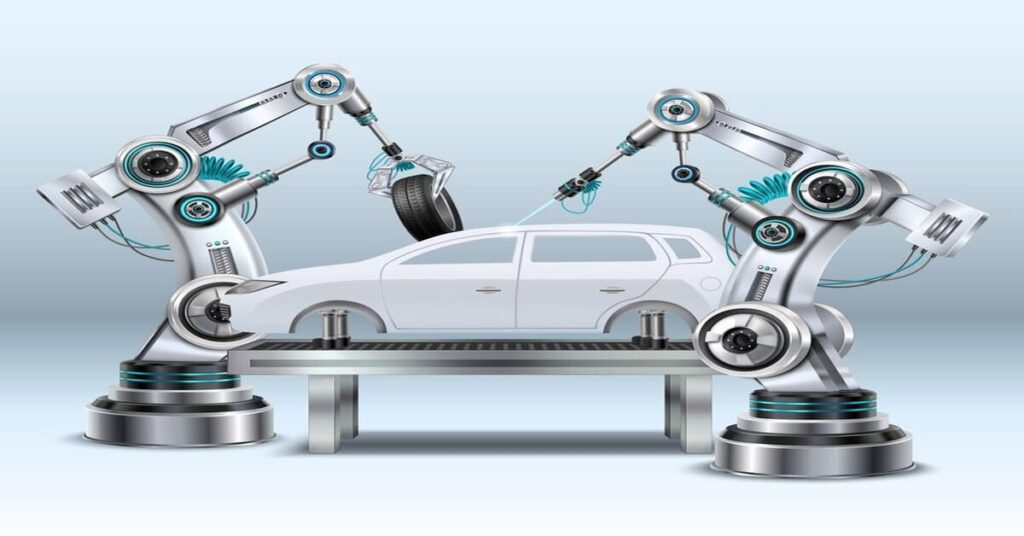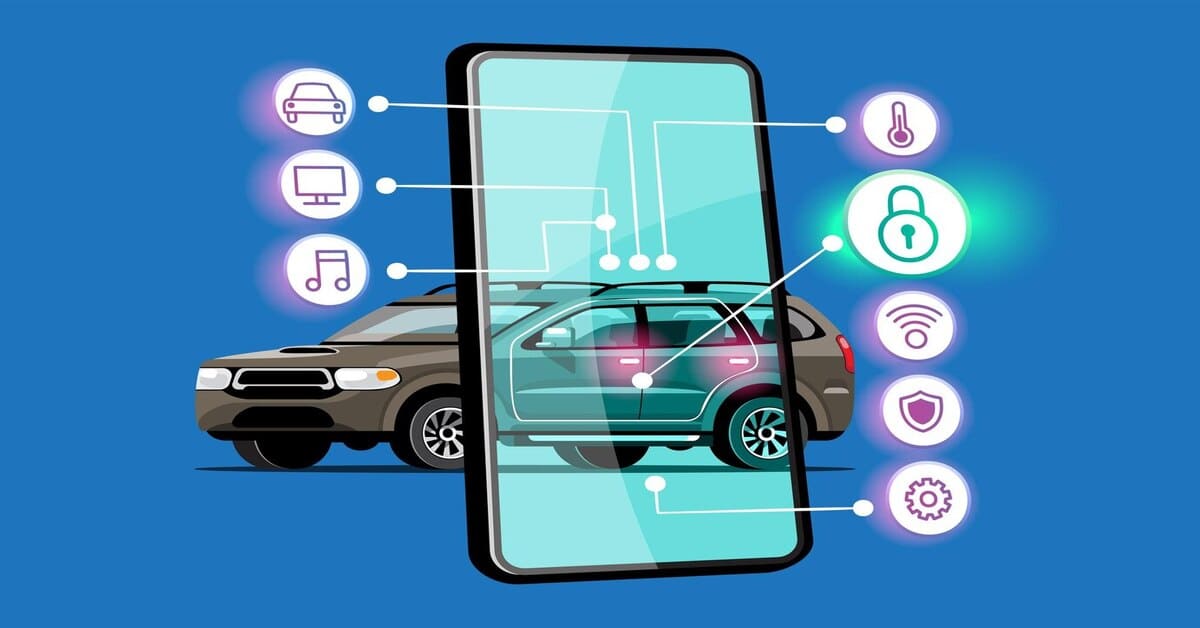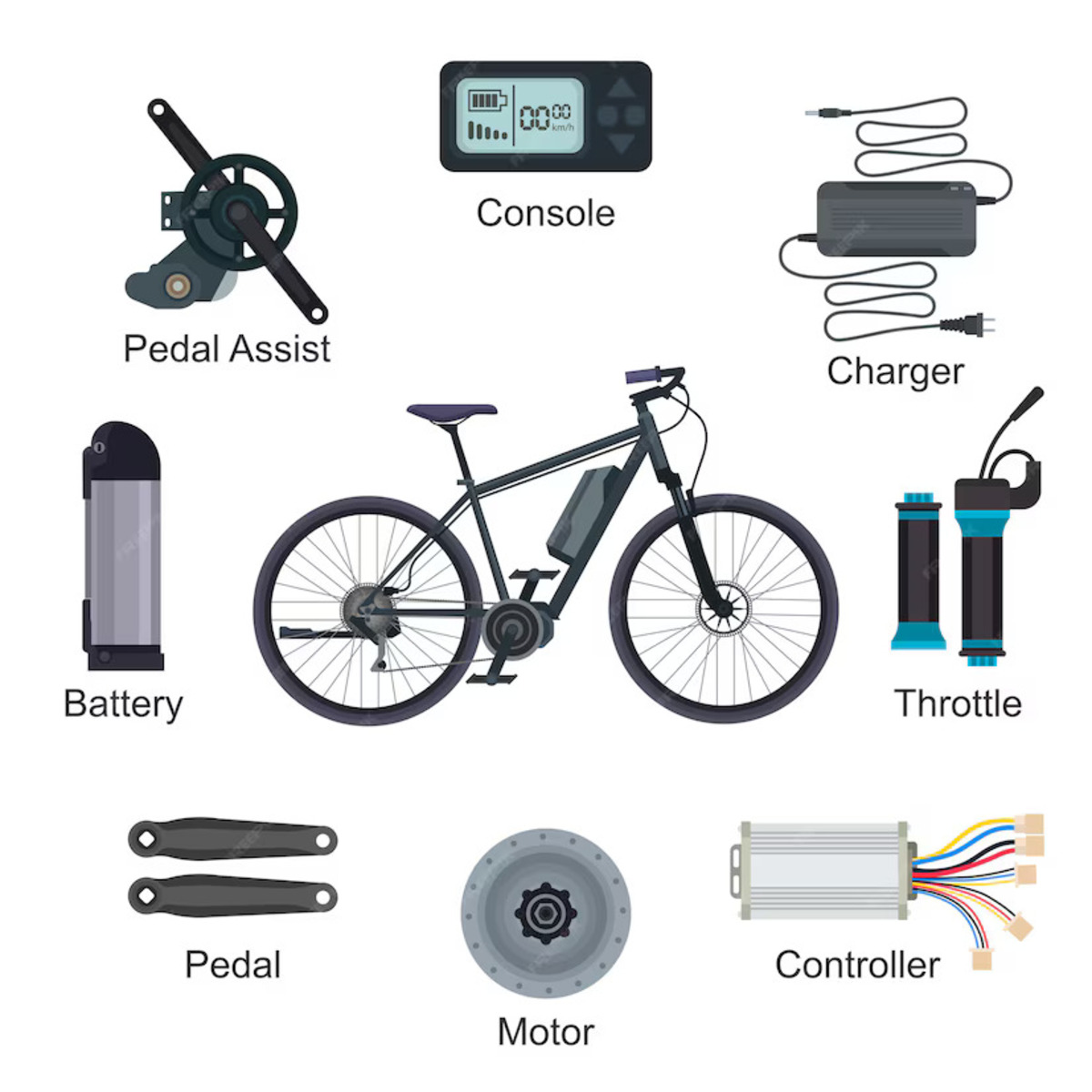What is Artificial Intelligence (AI)?
Artificial intelligence (AI) is a technology that has the potential to reshape our world. In it, machines learn and perform tasks like humans, which enhances vehicle performance, convenience, safety, efficiency, and productivity. With the use of artificial intelligence in electric vehicles, EVs are becoming smarter.
Why is Artificial Intelligence necessary for electric vehicles?
The use of artificial intelligence is at the forefront of innovation and has the potential to revolutionize the transport sector. Environmentally conscious people showcased a remarkable surge in the buying of electric vehicles as they offer an eco-friendly solution. AI is poised to dominate the automotive industry in the future. Artificial intelligence is necessary for electric vehicles, as it paves the way for a sustainable and technologically advanced green future of transportation.
By integrating artificial intelligence in electric vehicles, we will achieve an advancement in autonomous driving that will enhance safety and the overall driving experience.
Reasons for the Use of Artificial Intelligence in Electric Vehicles
A balanced approach is required to maximize the benefits of using artificial intelligence in electric vehicles. Artificial intelligence plays a pivotal role in electric vehicles. Let us dive into the reasons for the use of artificial intelligence in electric vehicles
1. Battery Management
The battery pack is undoubtedly the most significant component of electric vehicles. With the help of cutting-edge algorithms, AI helps to enhance the battery life and overall performance of the vehicle. The use of artificial intelligence in electric vehicles can even anticipate charging patterns, manage battery temperature for ideal operating conditions, and prevent excessive heat or cold-related battery issues.
2. Prevents Breakdown
The use of artificial intelligence in electric vehicles can monitor sensor data and operational systems to identify anomalies that may cause faults in working parts of EVs like the powertrain, brake control, battery management system, etc.
3. Reduce Traffic Congestion
AI even aids in communication between the vehicle, infrastructure, and other vehicles, which will improve energy efficiency. By optimizing routes, the use of artificial intelligence in electric vehicles can reduce traffic jams and improve flow. Additionally, it can plan energy-optimized charging routes to lessen strain on the battery and the powertrain.
4. Ensures Safe Driving
AI-driven self-driving systems are making significant contributions to the development of electric vehicles. The use of artificial intelligence in electric vehicles can enable complex situations, detect obstacles, and ensure safe and efficient driving. However, it includes lane keeping, navigation, crash avoidance, and many more.
5. Manufacturing and Design

AI’s role in the manufacturing and design of the vehicle is beyond human thinking. They can analyze the vast data and multiple variables to make sustainable products that will make electric vehicles more eco-friendly and contribute to a greener future. Moreover, the use of artificial intelligence in electric vehicles in supply chain management and factory automation improves manufacturing.
6. Maintenance
The influence of AI in electric vehicles can be noticed in maintenance, as it plays a vital role in enhancing their performance and longevity. The use of artificial intelligence in electric vehicles is revolutionizing the wave of electric vehicles and making them smarter and more efficient. An AI-driven predictive maintenance system monitors our electric vehicle at every movement. It can analyze the data with sensors and algorithms. AI can alert you in advance when electric vehicles need maintenance. Furthermore, it can even recommend the nearest service center. It turns electric vehicle ownership into a hassle-free experience. This keeps EVs running at peak efficiency. AI has the potential to create innovative and light-weight components, optimize performance, and reduce waste material.
7. Charging Optimization
AI aids EV charging by considering driver patterns, electricity rates, demand charges from utilities, etc. to get the easiest charging at the lowest rate. The use of artificial intelligence in electric vehicles allows us to avoid overloading the grid during peak hours.
8. Software and Sensor Redundancy
With the control of several software and sensors, the use of artificial intelligence helps EVs remain operational if any components fail to work by providing other transfer controls. AI algorithms can identify bugs in software and fix them to prevent issues.
9. Cybersecurity Enhancement
With the use of artificial intelligence in electric vehicles, it monitors them and can identify cyberattacks and malicious activity at an early age and mitigate the issue.
10. Testing and Simulation
Through far more scenarios, the use of artificial intelligence in electric vehicles allows for testing EV platforms much faster than humans and can identify failure points before they occur in the real world.
11. Driver Personalization
AI can understand driver preferences and habits to customize the EV experience. It includes setting seat positions, entertainment systems, climate control, etc. To optimize the use of energy, AI can adjust torque distribution and route planning, which is helpful even when driving beyond the range.
12. Autonomous Electric Vehicle
The continuous innovation in artificial intelligence and electric vehicles showcases a favourable future for autonomous electric vehicles. The algorithm of AI can easily handle complex situations, indicating safer and more reliable driving experiences.
Why Can the Use of Artificial Intelligence in Electric Vehicles be harmful?
Let us understand why incorporating artificial intelligence into electric vehicles can be harmful:
1. Cost
The use of artificial intelligence in electric cars will make the cost high, leading to the unaffordability of the vehicle.
2. Security Concerns
AI-powered cars can easily be hacked, leading to security breaches, and they can spoof data from sensors to provide the wrong information to AI-enabled systems, causing accidents.
3. Dependency on Technology
The function of AI relies on connectivity; if the connectivity system fails, it may showcase wrong information and lead the driver into dangerous situations. If we become too dependent on AI to enhance efficiency and automate major work soon, it will cause problems for future generations.
4. Legal and Regulatory Challenges
AI-powered cars may have legal and regulatory challenges related to liability. Liability concerns around AI are determined, which leads to uncertainty about protection. AI continuously learns and adapts means of self-driving that will become more capable over time. AI has several applications in EVs, ranging from power management to self-driving capabilities and beyond.
Also read:
How To Apply For Tata EV Charging Station Franchise
Complete Guide Of Solar EV Charging Stations
Top 15 EV Charging Solution Providers in India
The Optimistic Future of Electric Vehicles: Driving Towards a Sustainable Tomorrow
Conclusion
In a nutshell, artificial intelligence is diligently working to alleviate the stress of running out of charge on the road. EVs journey with the use of artificial intelligence is brighter than ever. Through AI-driven algorithms, EVs can predict energy consumption. Advancements in machine learning and artificial networks are key aspects of this transformative journey.
The future of electric vehicles using artificial intelligence is shining. By optimizing the EV system, AI aids in early warning and preventing issues through continuous data analysis for better improvement that mitigates harmful and costly breakdowns. The use of artificial intelligence in electric vehicles has potential benefits, but anyway, it is a technology and can be failed anytime, leading to destruction situations, so before implementing AI technology in electric vehicles, the validation of the AI system should be thoroughly checked.




